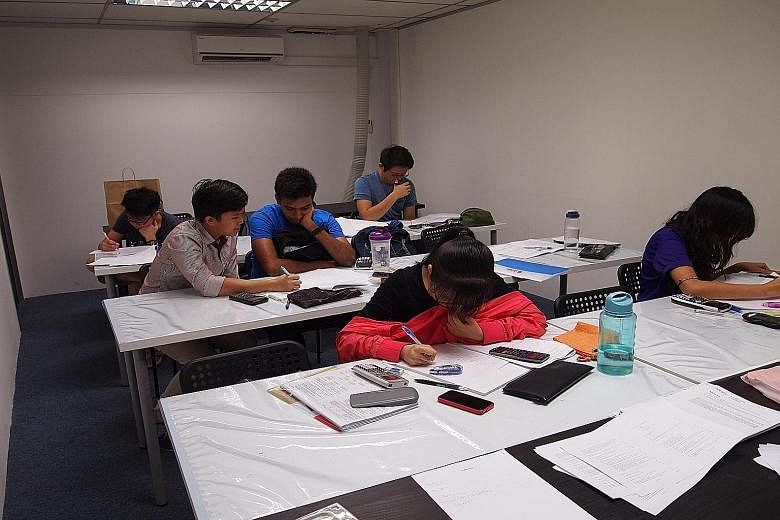Q: My son is sitting his O-level examination, while my daughter is in Primary 5. I have taken leave for a whole month to be with my kids through the examination period.
I had also thought of buying my son a new mobile phone if he does well, but my husband feels I shouldn't have to resort to bribing him.
How can I best support them and encourage them to work hard?
A:One of the best ways to ease the stress for your children during exam time is to make home life as calm and pleasant as possible.
Help them decide on a fixed area at home where they can study with the least distraction. Make sure they have everything they need - pens, pencils, highlighters and cards for creating revision notes. Unless they are using the computer for revision, turn it off.
Work out a revision timetable with them. You need a plan that is realistic and that they can stick to.
For most children, concentration falls off after half an hour or one hour. So break revision time into chunks with short breaks at the end of each session.
Encourage your children to get their notes in order for each subject before starting on the revision. Having notes organised into topics for each subject may be helpful.
For your younger child, you may want to go through school notes with her or listen while she revises a topic. If she is struggling with a topic or question, ask her to note it down and seek her teacher's help.
Encourage your children to set targets for each day and tick them off as your children achieve them. This will build confidence and lessen anxiety.
If your children are given study leave in the run-up to exams, try to be at home as much as possible, so you can ensure they keep to their schedule and take enough breaks in between.
Make sure there are plenty of healthy snacks in the fridge and try to provide nutritious meals.
Encourage your children to join family meals. It is important to have a change of scene. Also, encourage them to take breaks, say, walking with you to the supermarket. It helps to clear their minds before the next revision session.
Check the dates of each exam and keep a record of them somewhere you can see easily.
It is important for your children to get a good night's sleep before an exam, so discourage them from staying up late.
Make a final check each morning before they leave home, so they are fully prepared for the day's exams. For instance, check that they have packed writing instruments, along with other requirements such as calculators.
After each exam, your children may want to talk about the paper, especially if they feel anxious. Be positive and encourage them. Let them know you appreciate their effort and will be there to support them, regardless of how they performed in the exams.
You asked about giving gifts to encourage your children to do well.
Motivational psychology experts have advised that this is the wrong tactic if you want your children to take responsibility for their own learning.
In an interview with The Sunday Times a few years ago, Dr Richard Ryan, professor of psychology at the University of Rochester in the United States, noted that if a parent were to say "I will give you this if you achieve all As", the child is likely to do it for that reward.
It also means that, subsequently, the child will think the only reason to learn is to get the reward.
This puts the responsibility for learning on the parent, as the parent is the one who has to monitor the child, instead of a child assimilating and internalising the value of learning and hard work.
Dr Ryan said it would be better if a parent, after a child does well, suggests celebrating the good results over a meal at the child's favourite restaurant.
And what if a child does not deliver straight As?
Dr Ryan advises parents to acknowledge that, given the way examinations are marked, not every child can be at the very top, and to continue supporting their child.
Studies have shown that success in life is more likely related to feeling a sense of confidence and security that comes from parents, who support their child through successes and setbacks, rather than just doing well in examinations.
E-mail your questions to stnewsdesk@sph.com.sg. Specify Ask Sandra as the subject and include your name, age, gender and contact details.


